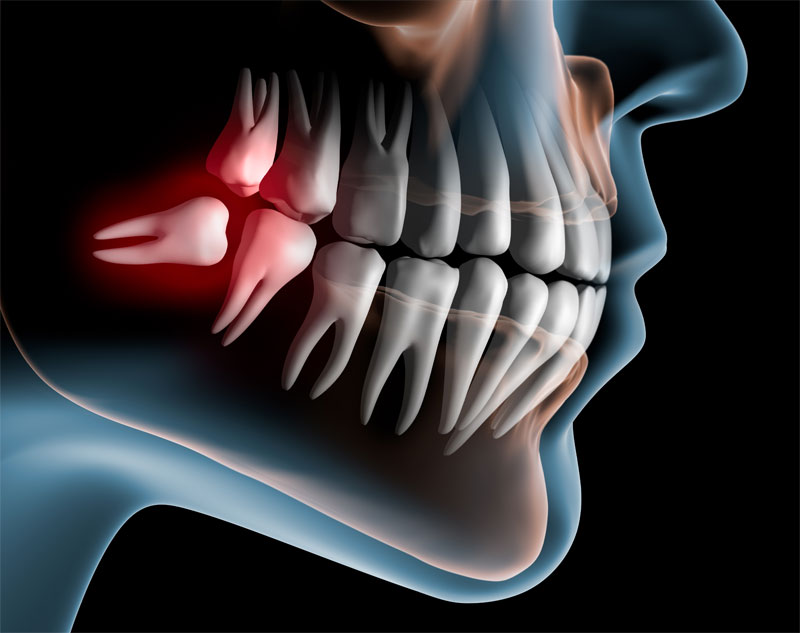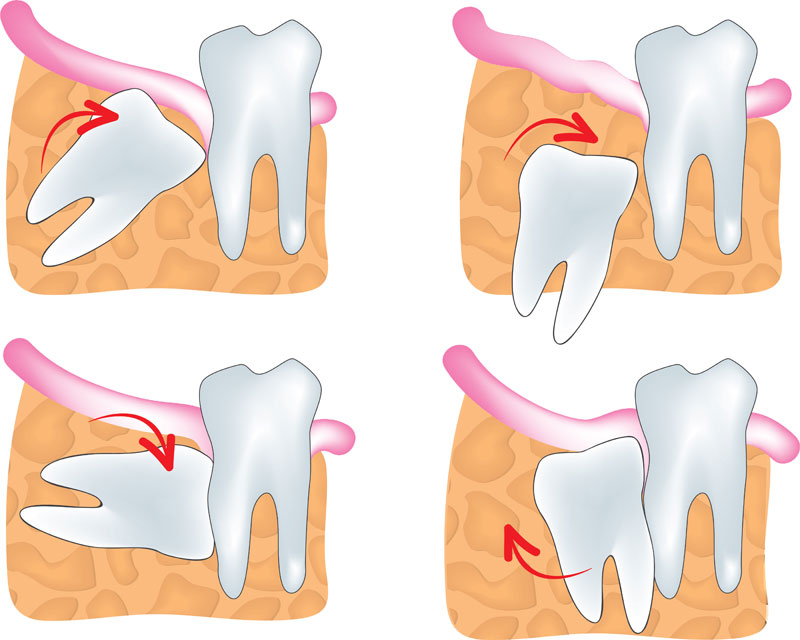By the age of 25 most people have a total of 32 teeth, 16 in each jaw. Each tooth has its name and function. The front teeth – incisors and canines are ideal for catching and tearing food into small pieces, while the side teeth – molars and premolars are for grinding food, transforming it in a condition suitable for swallowing.

The average mouth usually can ”settle“28 teeth only. It may be uncomfortable or painful when 32 teeth try to fit into a space suitable for 4 teeth less. These four teeth are the third molars, commonly known as ”wisdom teeth“.
Why should you remove wisdom teeth?

Wisdom teeth are the last teeth that are springing up. If installed correctly and if the gums around them are healthy, their extraction is not necessary.
Unfortunately, in practice this is not a standard situation. Wisdom teeth extraction is necessary when their germination and proper placement of the dental arch is compromised for various reasons. While trying to find the most suitable way of emergence, it may occupy different positions in the jaw, endangering adjoining teeth. The upper canines and lower premolars are also highly valued in terms of impacted teeth.
Such incorrect setting of impacted teeth can cause a lot of inconvenience. When the teeth are half – impacted or if their crowns are positioned out of bones or covered with soft tissues, pericoronitis, respectively, gingival inflammation may occur around the teeth. Food accumulates in the space between the occlusal surfaces of third molars and gingiva that covers it, causing its inflammation. Swelling, pain and redness will occur and the gingiva itself gets further irritated by trauma from the opposing tooth. The bone pockets that representthe layer of bacteria could occur as well and tooth extractions urgently would be needed before symptoms of general infection develop.
The pressure that occurs during the eruption (sprouting) can undermine the position of surrounding teeth, or the result of previously implemented orthodontic treatment.
Around impacted tooth is its follicle (bladder) which can cystically degenerate, or to form an odontogenic tumour. Such serious complications require urgent removal of non-erupted teeth and pathological processes.


